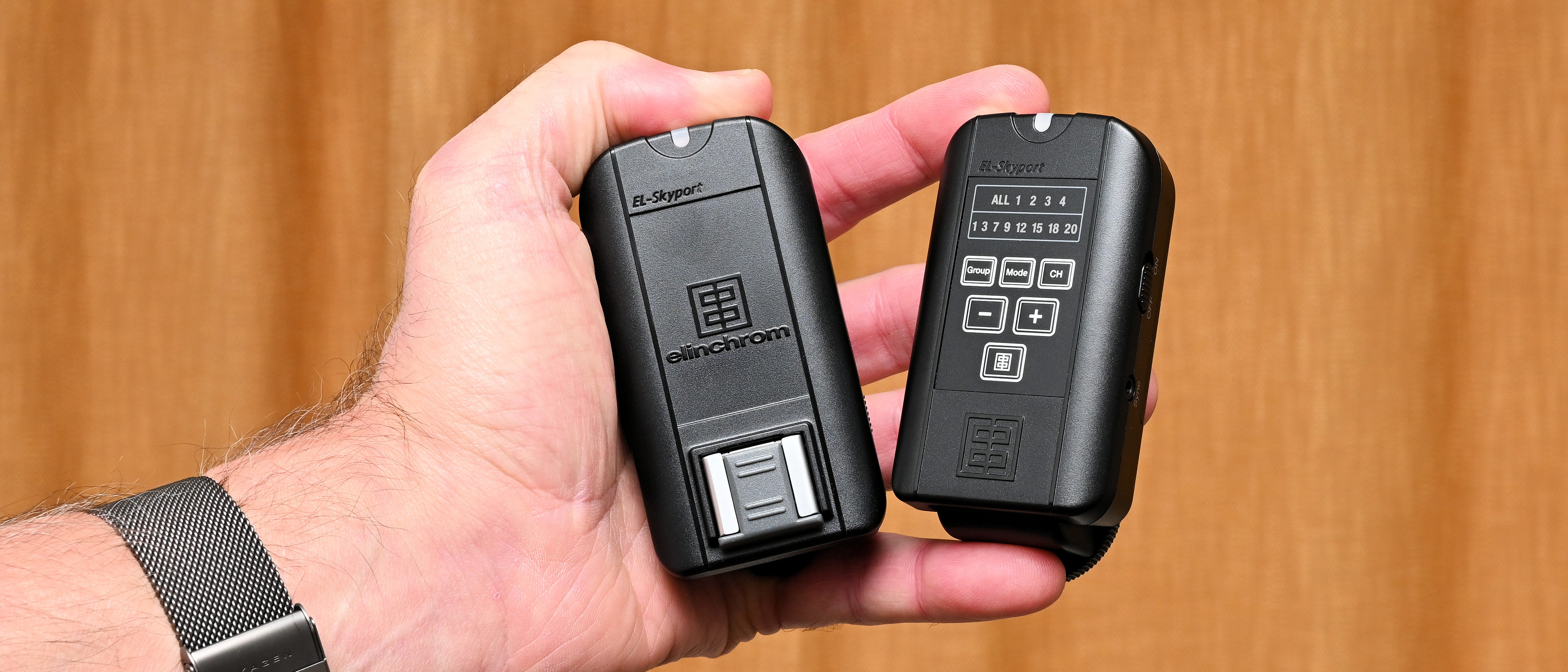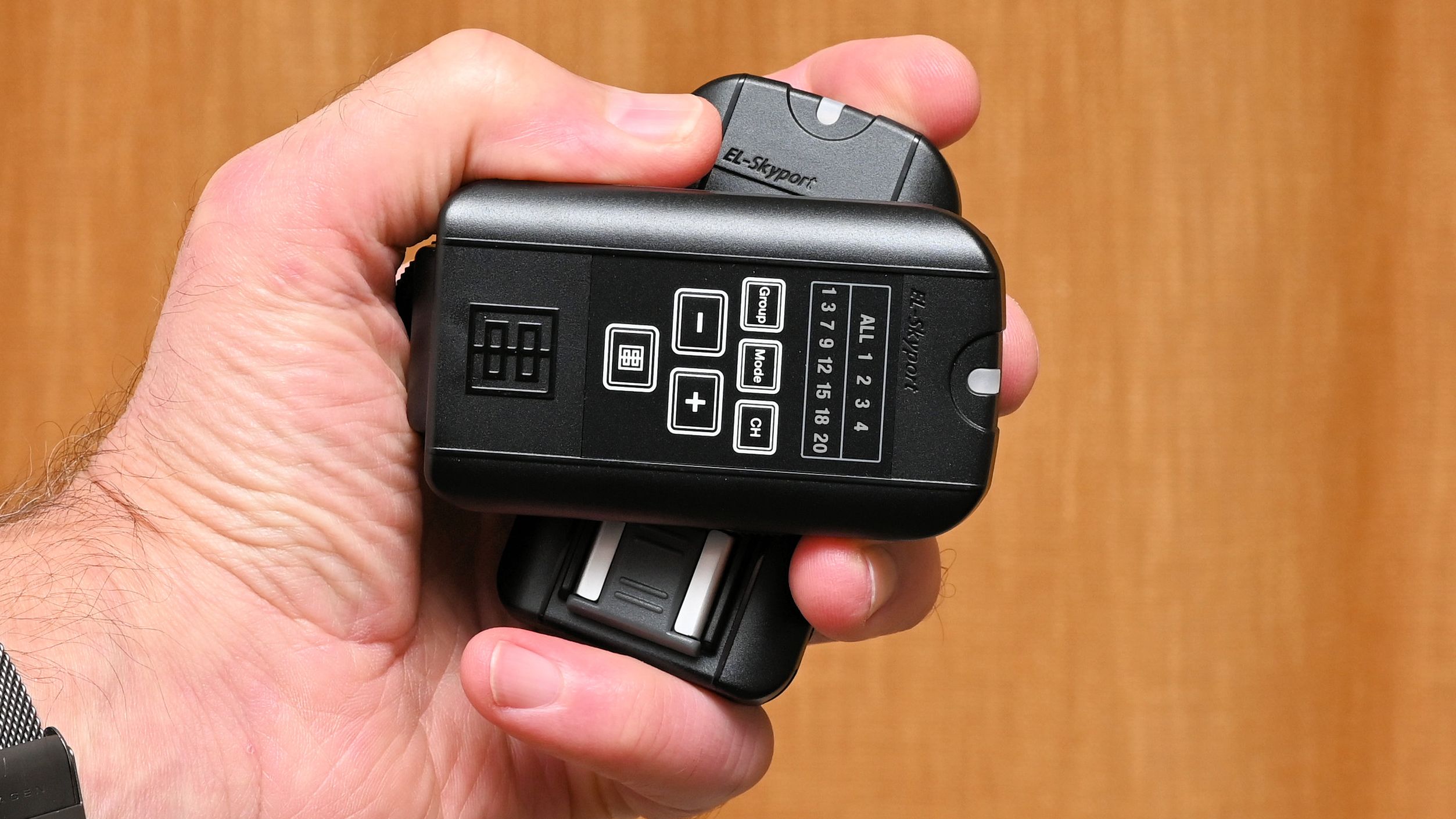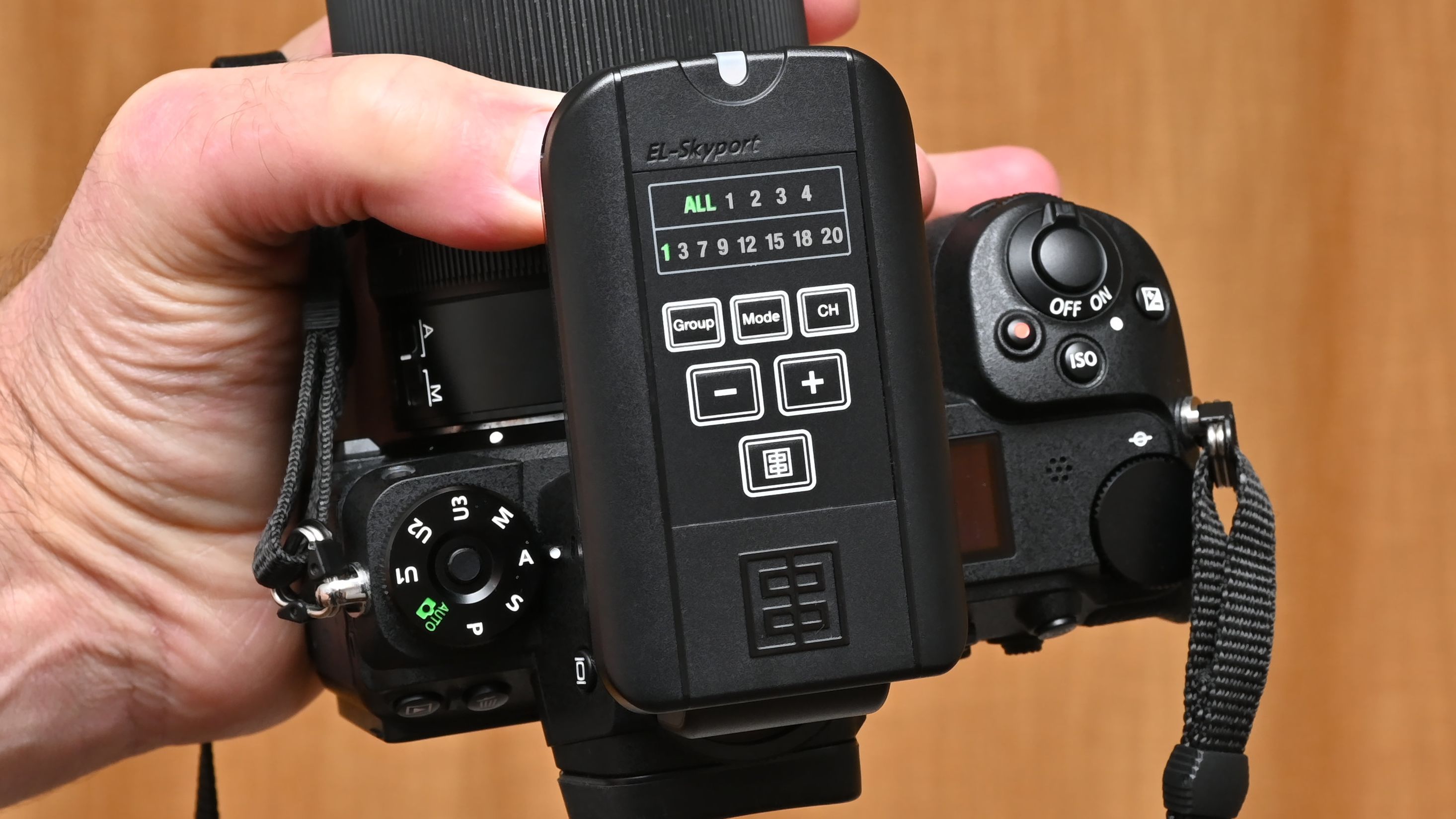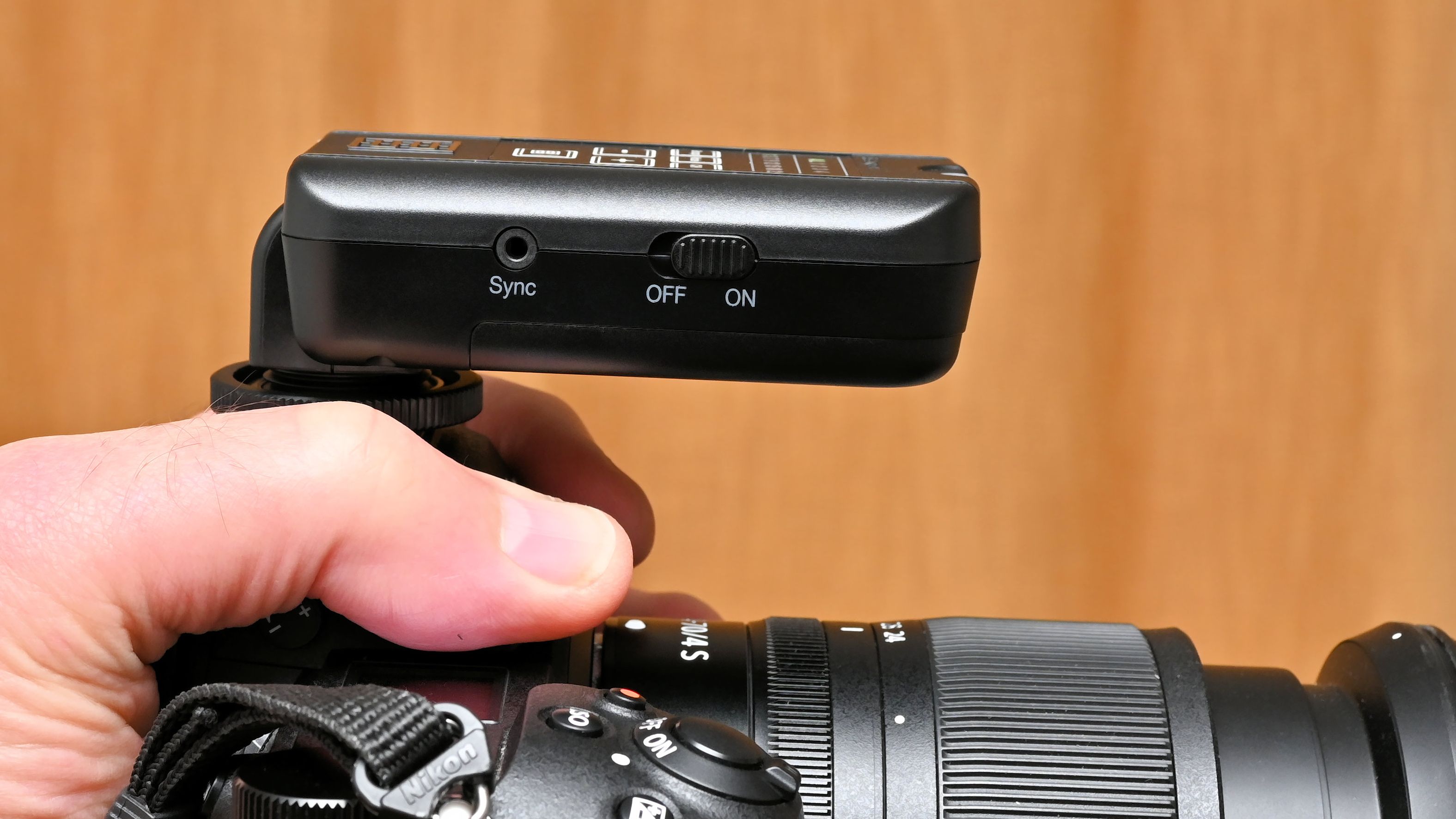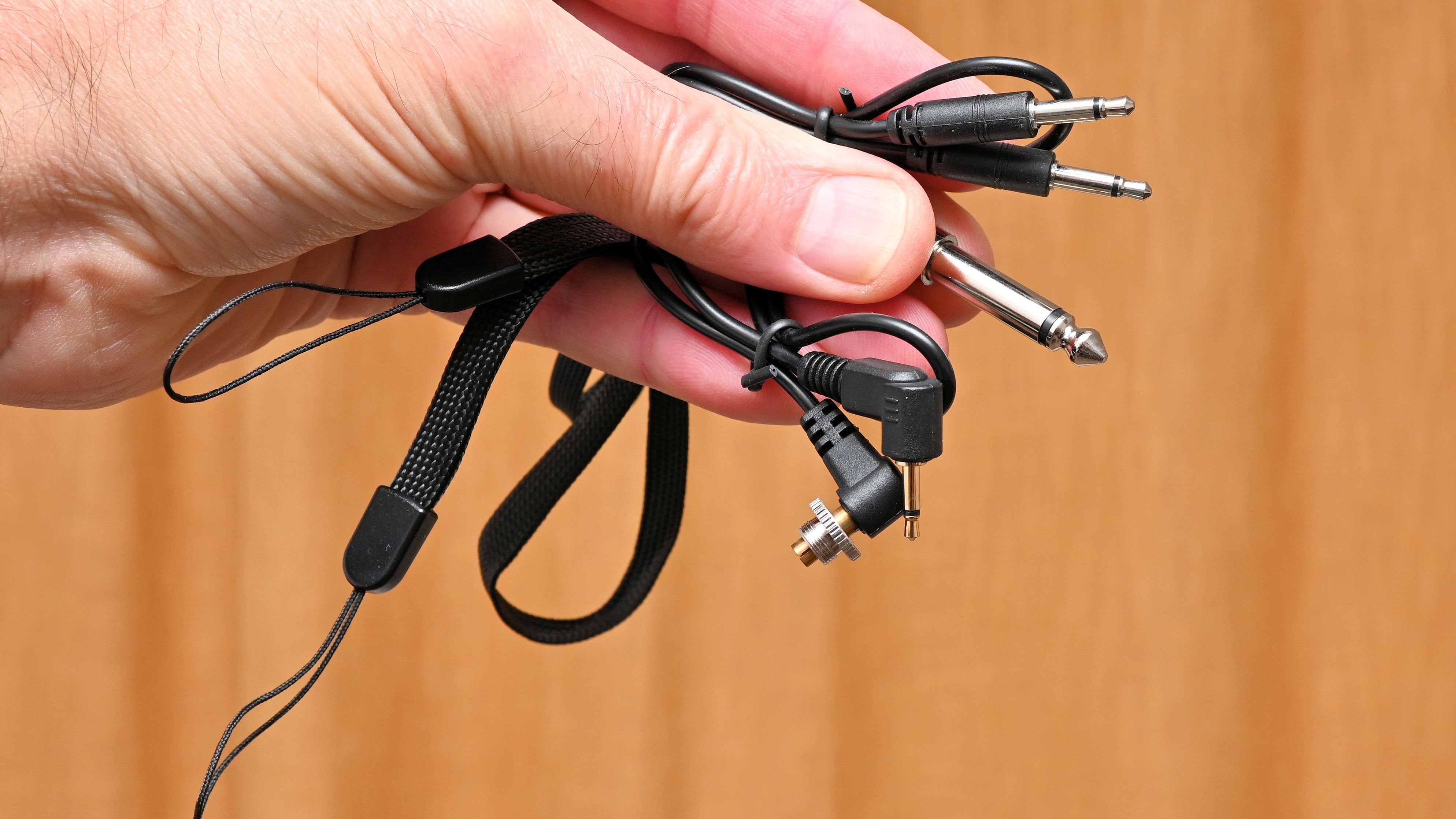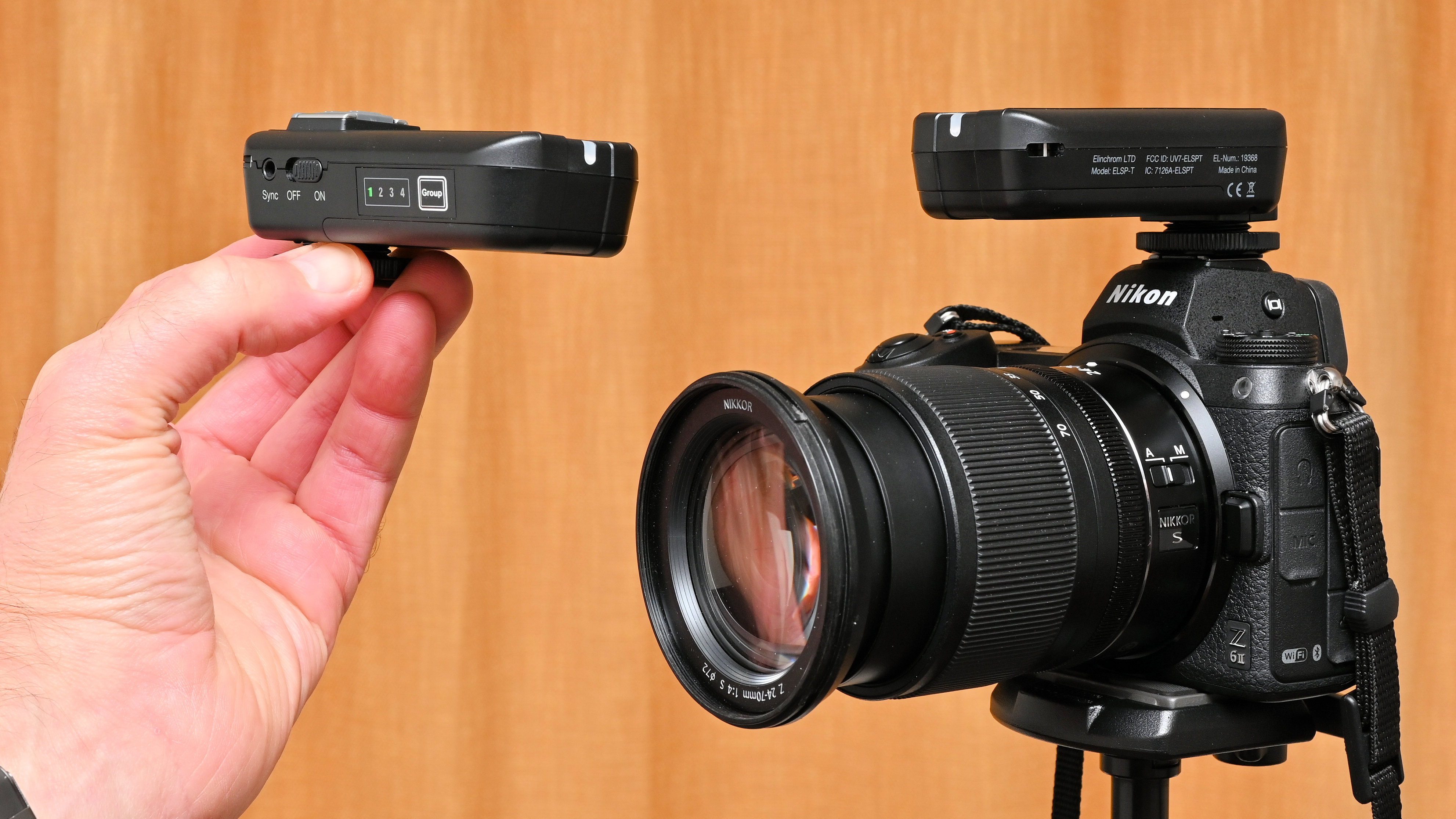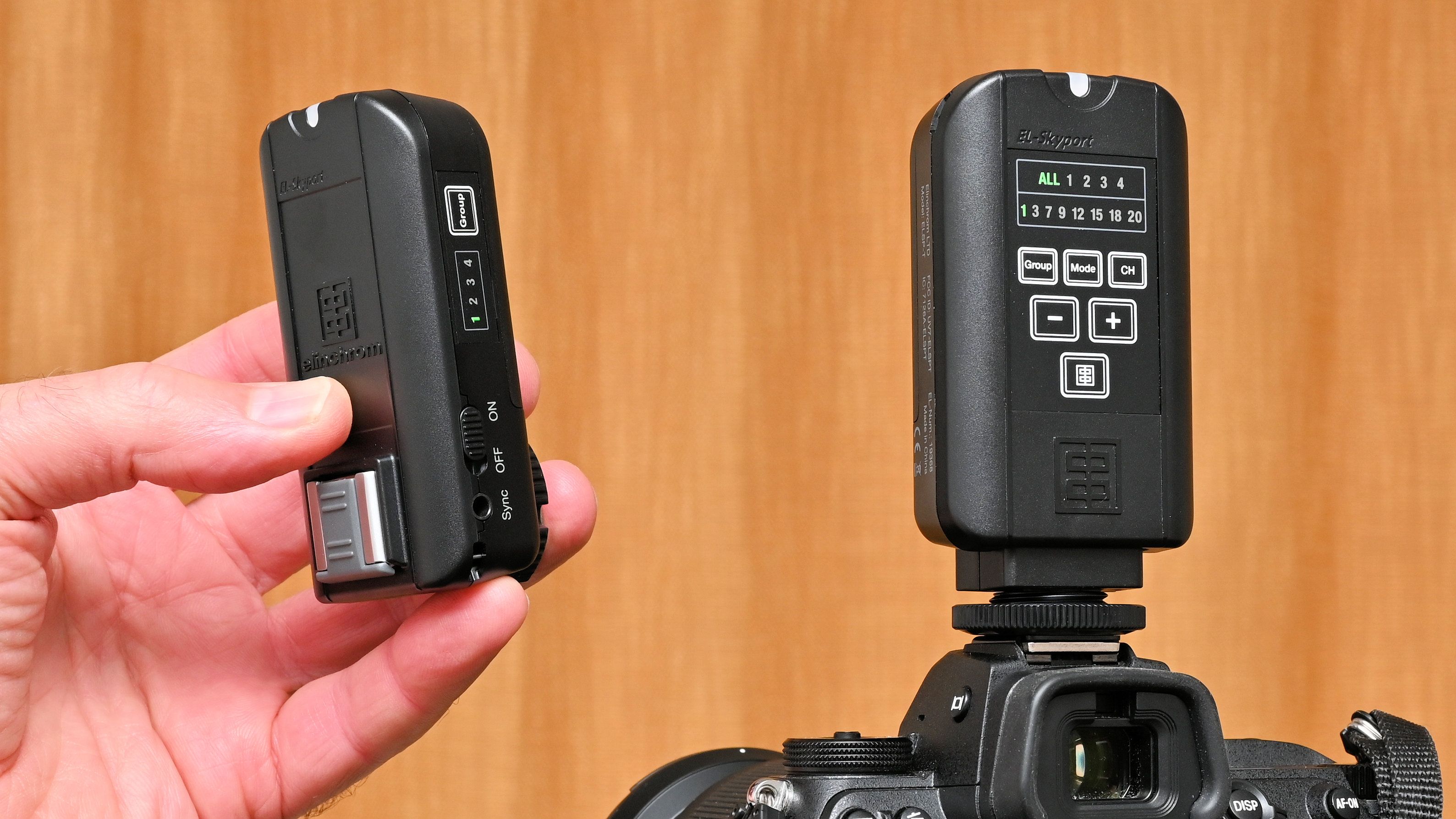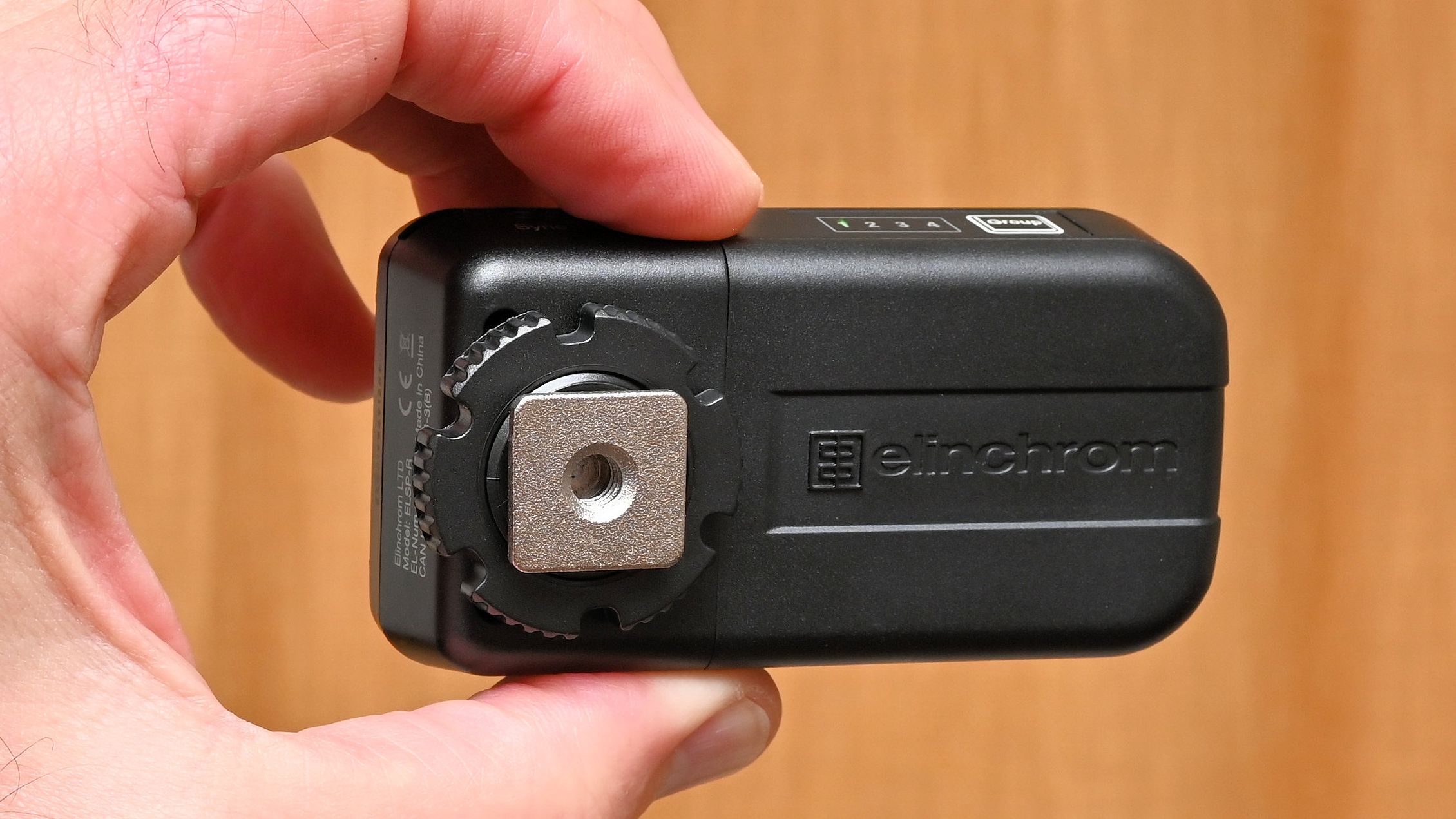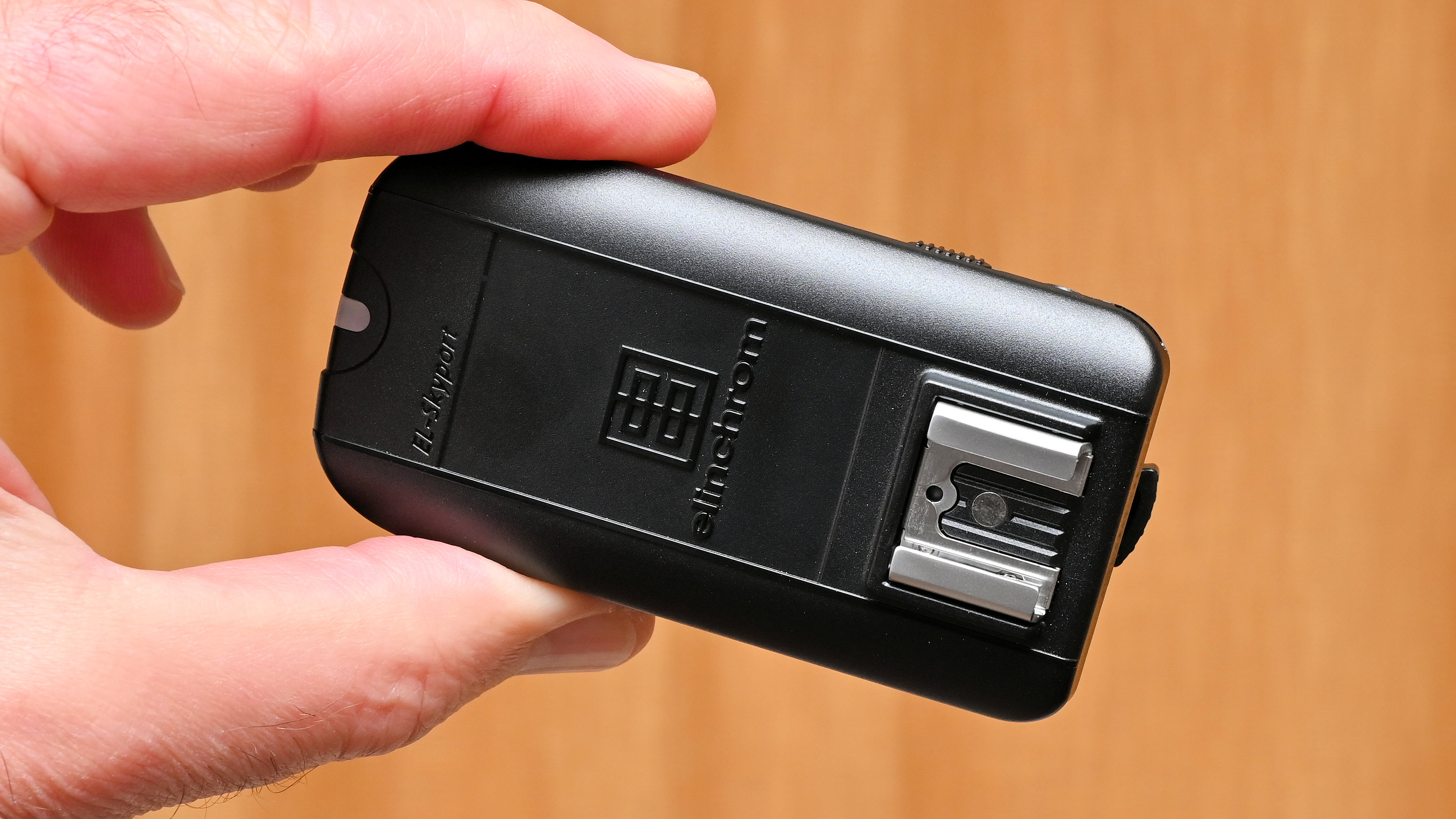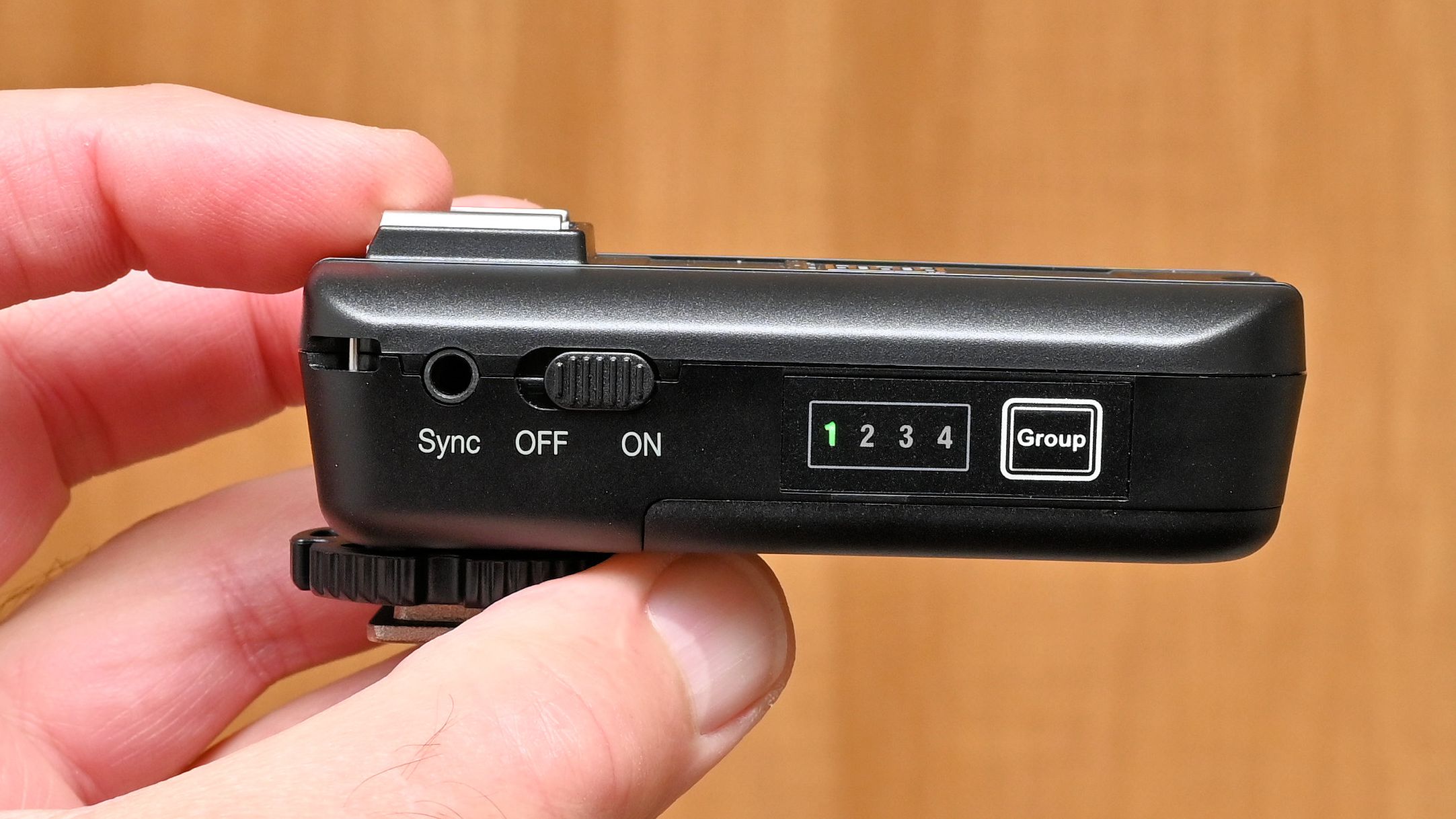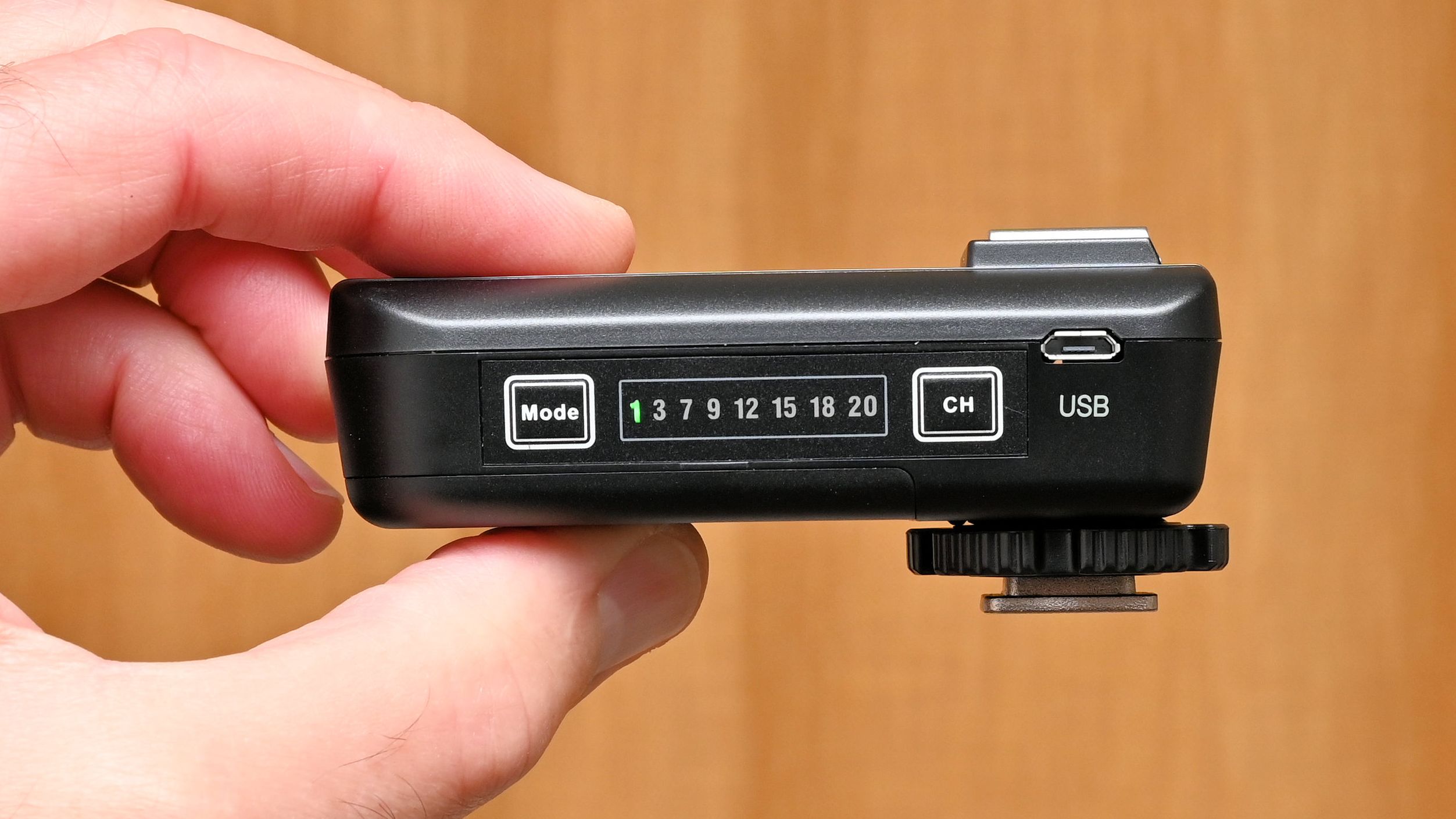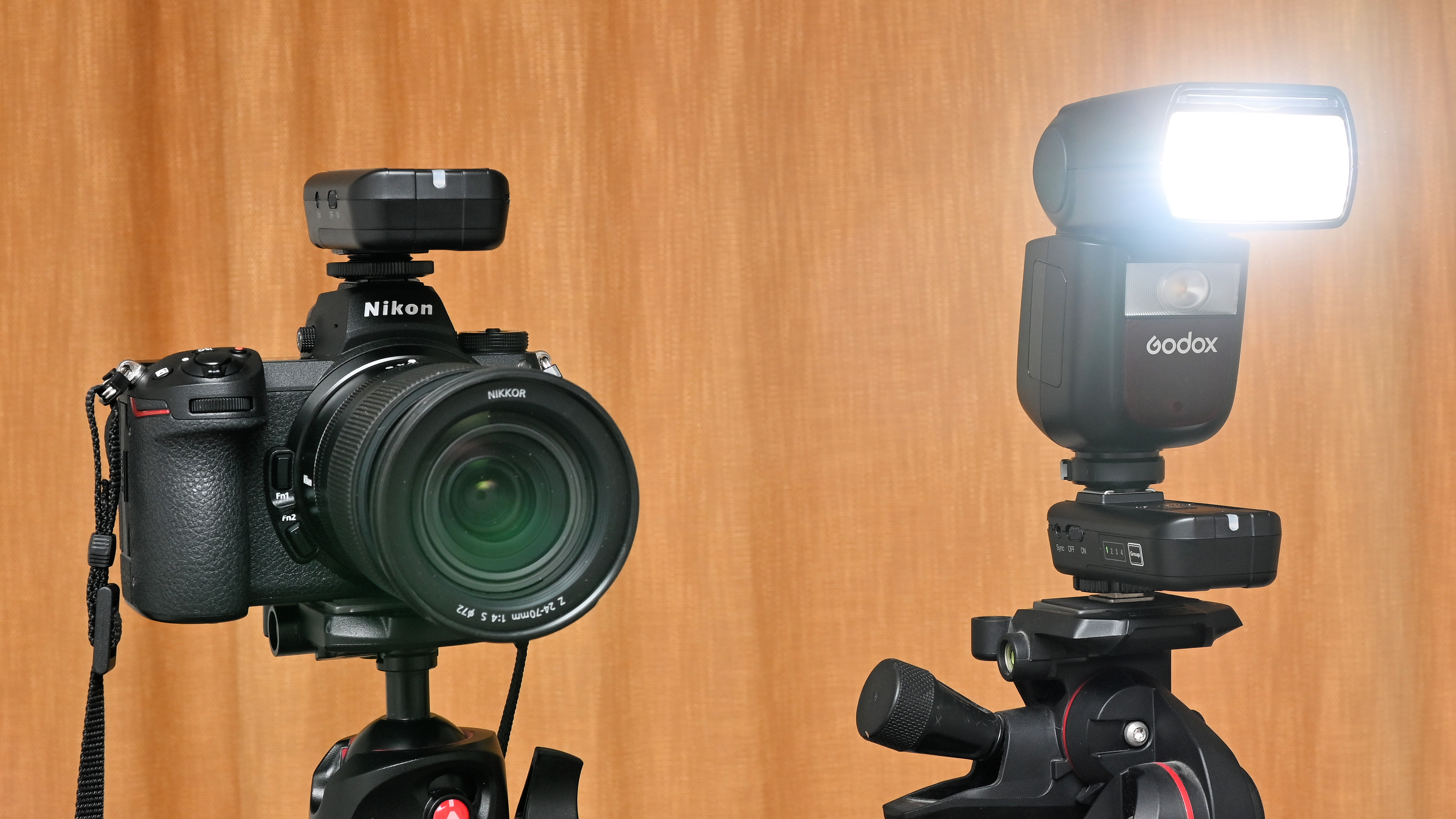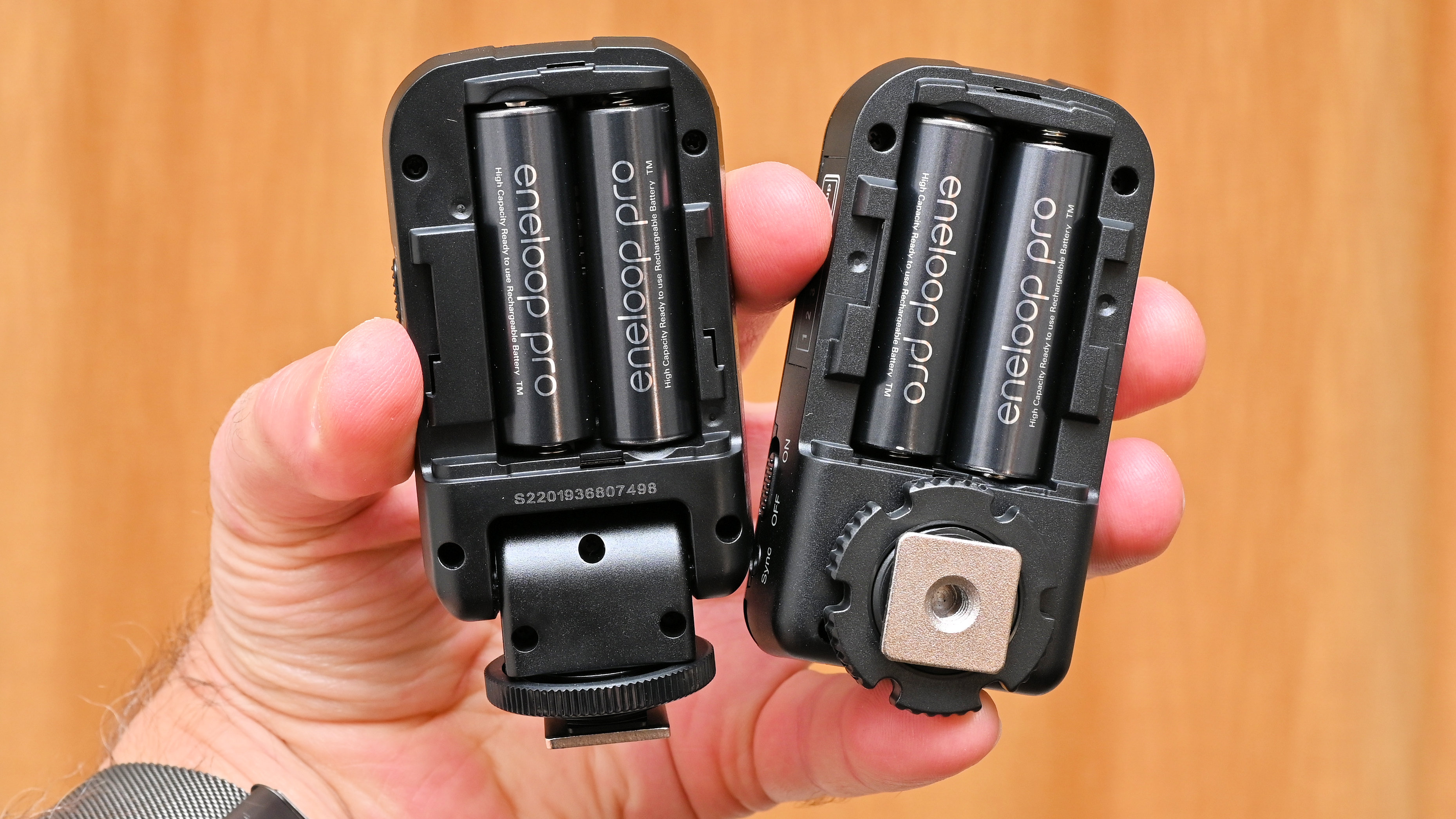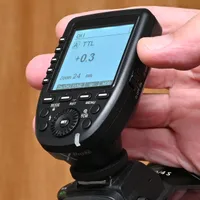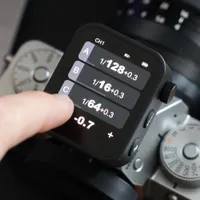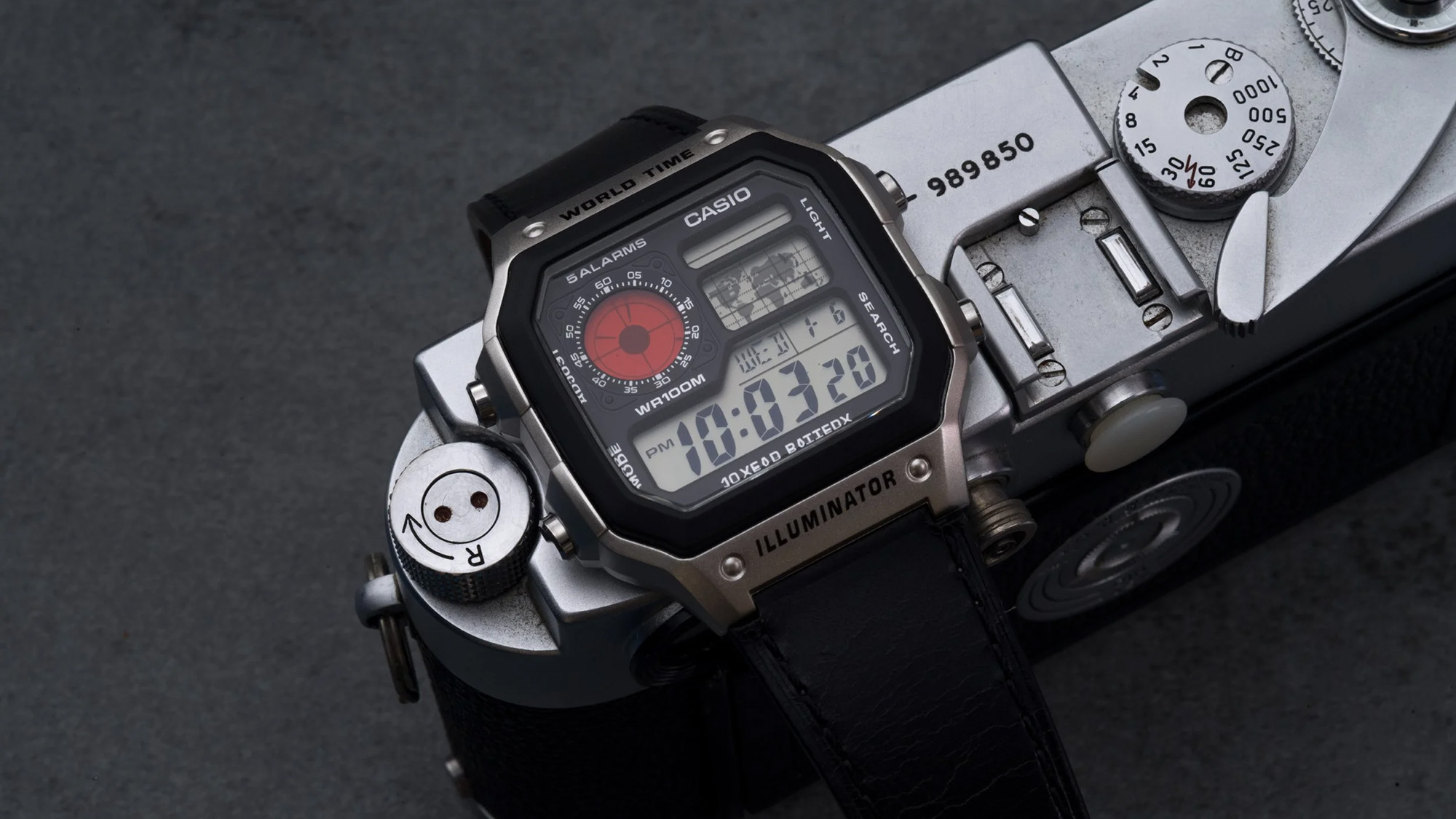Digital Camera World Verdict
The Elinchrom EL-Skyport Universal Plus Transmitter & Receiver Set is everything I’d expect from my all-time favorite photographic lighting company. I’ve relied on Elinchrom for many years now, and have been continually impressed by the quality, performance, and rock-solid dependability of its studio flash kits. This wireless trigger set follows suit, and I like that I can use it with pretty much any camera system and flash setup. It definitely lives up to its ‘universal’ billing.
Pros
- +
Wide-ranging compatibility
- +
Simple pushbutton interface
- +
High-quality build
- +
Up to 200m range
Cons
- -
No camera dedication
- -
No TTL metering
- -
No info screen
Why you can trust Digital Camera World
I’ve been into photography since I was a small child, learning from my dad, who was a professional photographer. I didn’t get into studio flash until many years later – nearly 20 years ago, in fact. I did a lot of research before buying my first kit, a set of Elinchrom D-Lite heads, and have never looked back. I’ve tested and reviewed several Elinchrom flash kits since then, ranging from entry-level sets to top-end pro offerings, and have been impressed every time around. The Swiss company has a lot of history, being founded back in 1962, and has always had a reputation for innovation and the highest levels of performance.
A constant theme, as far as I’m concerned, is that Elinchrom gear is always simple and intuitive to use, delivers consistent results of the highest quality, and is absolutely reliable and dependable. Ultimately, I can give my full attention to the creative process of shooting, rather than wrestling with needlessly complicated lighting setups. And the same goes for this transmitter and receiver set. Some of the later D-Lite ‘RX’ and other Elinchrom flash kits have the receiver electronics built into the actual flash heads, and even come complete with the trigger.
The EL-Skyport wireless radio remote system was actually launched back in 2005, and the Universal set that I’m reviewing here aims to be one of the best flash triggers for your camera, whichever camera system you happen to use.
Elinchrom EL-Skyport Universal Plus: Specifications
Dedication options | Universal |
Wireless range | 200m / 656ft |
Wireless TTL | No |
Remote flash control | Yes (EL-Skyport system only) |
High Speed Sync | Leaf shutter cameras only |
Flash groups / channels | 4 / 16 |
Elinchrom EL-Skyport Universal Plus: Price
I know plenty of professional photographers who rely on Elinchrom lighting and accessories and wouldn’t use anything else. The Elinchrom EL-Skyport Universal Plus Transmitter & Receiver Set is relatively straightforward, rather than having an overblown feature list and dedicated functions for individual camera systems. However, it’s made to work reliably and to be robust with pro-grade build quality, which makes the asking price of $140 / £142 / AU$260 very reasonable, as far as I’m concerned.
Elinchrom EL-Skyport Universal Plus: Design & Handling
I’ve said it once, but I’ll say it again: Elinchrom ‘RX’ flash heads have the receiver electronics of this kit built into them, so you only need to use the transmitter, which is often supplied as part of a complete kit anyway. However, the universal nature of this kit extends to use with pretty much any camera system, any flash head, and any flashgun or ‘speedlight’.
Let’s start with the transmitter. The whole set is of a certain age, so there’s no new-fangled touchscreen interface. In fact, there isn’t even a mono LCD panel. Guess what – I don’t care. The top panel of the transmitter gives me everything I need, with simple pushbuttons for setting up to four groups of lights in 16 channels. That said, eight channels are for normal sync and eight are for ‘speed’ mode, enabling high-speed sync with leaf shutter cameras. You should also be aware that only three of the channels are compatible with older EL-Skyport systems.
The full range of pushbuttons gives access to groups, mode, channels, power-up and power-down, as well as a test flash button. Altering the power of the flash is only available with Elinchrom heads that feature the EL-Skyport system, so if you’re using a flashgun or a different studio flash head, you’ll need to adjust the power manually.
The best camera deals, reviews, product advice, and unmissable photography news, direct to your inbox!
Moving to the right-hand side of the transmitter, you’ll find a simple on/off switch and a 2.5mm sync socket. The sync socket extends the range of compatibility to include cameras that don’t feature a regular hotshoe. As such, you could either buy a hotshoe adapter or use the supplied sync cable to connect the transmitter to a camera’s PC sync socket.
Up front, there’s a status lamp, as also featured on the receiver unit. This flashes in green when the transmitter and receiver are in normal mode, and in red when they’re in ‘speed’ mode. Pressing the mode button on both units to make the change also results in the other status panels for groups and channels swapping between green and red accordingly. The front status lamps also flash when you press any of the buttons or release the camera’s shutter, for visual confirmation.
One of the things that really impresses me about this kit is its wireless range of up to 200m / 656ft. To help the radio frequency communication really go the distance, the transmitter has a 90-degree upright pivot facility, so you can alter the orientation for optimum connectivity. However, in speed mode, the maximum range is halved to around 100m / 328ft. That should still prove more than enough for most situations, as well as giving enough power to cut through obstacles or work around corners, unlike with infrared wireless communication. The image above shows the trigger and receiver in horizontal orientation, while below, both are upright.
Let’s move onto the receiver module. Again, this has a hotshoe mounting base, or rather a ‘cold-shoe’ as there’s no triggering pin underneath. That’s only natural, as the triggering is received by RF wireless transmission, which is the whole point of the kit. The foot has a standard threaded quarter-inch socket for attaching to a tripod or similar support, as well as mounting into a cold-shoe, complete with locking clamp.
The top of the receiver actually does have a hotshoe. Remove the protective rubber pad and you’ll notice that, as with the trigger, there’s only a single electronic connection pin. That’s because the kit is universal rather than coming in different dedicated versions for specific camera systems. The net result is that there’s no TTL flash metering nor high-speed sync on tap. The plus side is that you can slot a regular flashgun into the hotshoe of the receiver and trigger it remotely, while using manual flash power adjustments.
As with the transmitter, compatibility is stretched to the max by the receiver featuring a 2.5mm sync socket. You can use the supplied cable for triggering any flash head that features a standard 2.5mm jack socket for synchronization. That said, quite a few flash heads have a 1/4-inch jack socket instead, but no worries, the kit includes a 2.5mm to 1/4-inch adapter. The receiver’s sync socket is towards the rear of the right-hand side, which also features the on/off switch, plus the pushbutton and status display for the group settings, the latter with four options.
The left-hand side of the receiver has another pair of pushbuttons. The one towards the rear enables you to cycle through the various channels on offer, with a status display showing the current or new setting. Towards the front, there’s a Mode button for selecting standard or speed modes, which need to be matched to the setting on the transmitter. At the rear of the left-hand panel is a Micro-USB socket, which you can use to apply firmware updates as and when needed.
Elinchrom EL-Skyport Universal Plus: Performance
In terms of performance, the Elinchrom EL-Skyport Universal Plus Transmitter & Receiver Set only really has one goal. That’s to deliver 2.4GHz radio frequency wireless transmission between the transmitter and receiver, effectively and reliably. I need the peace of mind that comes from knowing that when I press the shutter release on my camera for that all-important, time-critical shot, the camera is going to fire the transmitter, the transmitter is going to communicate with the receiver, and the receiver is going to trigger the studio flash or flashgun.
Using the Elinchrom with studio flash as well as with flashguns, I’m happy to report that it gave me a 100 per cent success rate, which I certainly can’t say about some flash triggers that I’ve used. As advertised, it worked over large distances, through obstacles and around corners, both indoors and outdoors. It’s useful being to increase or decrease the power of Elinchrom flash heads that have built-in EL-Skyport connectivity but, for me, needing to manually change the power settings of flash heads and flashguns when this is unavailable certainly isn’t a deal-breaker.
Another aspect of performance is battery life. You need to be able to count on your batteries not going flat during a shoot and the system has plenty of stamina. I like that the transmitter and receiver each take a pair of standard alkaline or Ni-MH AA batteries, which are long-lasting, universally available and easy to replace, unlike small coin batteries.
You can expect fresh batteries in the transmitter to last for around 30,000 flashes, and the batteries in the receiver to last for about 30 hours of use. I use some of the best rechargeable AA batteries and, if I’m in any doubt, top up the charge before an important shoot. Both modules feature a power-saving standby mode, which activates after 30 minutes in the transmitter and after four hours in the receiver.
Elinchrom EL-Skyport Universal Plus: Verdict
If you’re after a ‘dedicated’ wireless trigger set to match your camera system, that enables TTL flash metering, high-speed sync and remote control of flashgun power adjustments, then the Elinchrom EL-Skyport Universal Plus Transmitter & Receiver Set isn’t for you. However, if you want a trigger with rock-solid dependability that works flawlessly even over long distances, both indoors and out, this is a great universal trigger set that you can use with all sorts of cameras, flashguns and studio flash setups.
Sure, you only get one receiver in the kit, but you can buy more separately if you need to. I find that triggering one flash with the kit and using other flashes in slave mode, when I’m using multi-flash configurations, usually works fine anyway. And if you’re using Elinchrom ‘RX’ flash heads with built-in RF receivers, the trigger also gives you the ability to increase or decrease power remotely. All in all, it’s a smart kit that combines excellent performance with really solid build quality.
Features ★★★★☆ | The trigger and receiver both feature pushbutton interfaces and illuminated status displays, while the receiver’s hotshoe and supplied cables ensure the greatest ‘universal’ compatibility. |
Design ★★★★☆ | Build quality feels of Elinchrom’s usual pro-grade standard and the kit is pretty compact, considering its extensive wireless triggering range. |
Performance ★★★★★ | The transmitter and receiver never missed a beat during my testing, and I’ve experienced the same when using the transmitter with Elinchrom RX flash heads. |
Value ★★★★☆ | It’s not a cheap kit but I think it’s still very good value, considering the build quality, reliability and performance. |
Alternatives
The Godox XPro TTL/HSS flash trigger has a 100m / 328ft range and is designed to work with Godox flash units that include an RF receiver or transceiver. However, RF hotshoe receivers are also available to work with the Godox system. The trigger is available in Canon, Nikon, Sony, Fujifilm, Micro Four Thirds, and Pentax-dedicated options.
The Godox X3 (Xnano) is a newer version of the XPro and features a touchscreen interface instead of pushbuttons and a mono LCD info panel. It’s available in various dedicated options, including Canon, Nikon, Sony, Fujifilm, and Micro Four Thirds.
Matthew Richards is a photographer and journalist who has spent years using and reviewing all manner of photo gear. He is Digital Camera World's principal lens reviewer – and has tested more primes and zooms than most people have had hot dinners!
His expertise with equipment doesn’t end there, though. He is also an encyclopedia when it comes to all manner of cameras, camera holsters and bags, flashguns, tripods and heads, printers, papers and inks, and just about anything imaging-related.
In an earlier life he was a broadcast engineer at the BBC, as well as a former editor of PC Guide.
You must confirm your public display name before commenting
Please logout and then login again, you will then be prompted to enter your display name.
